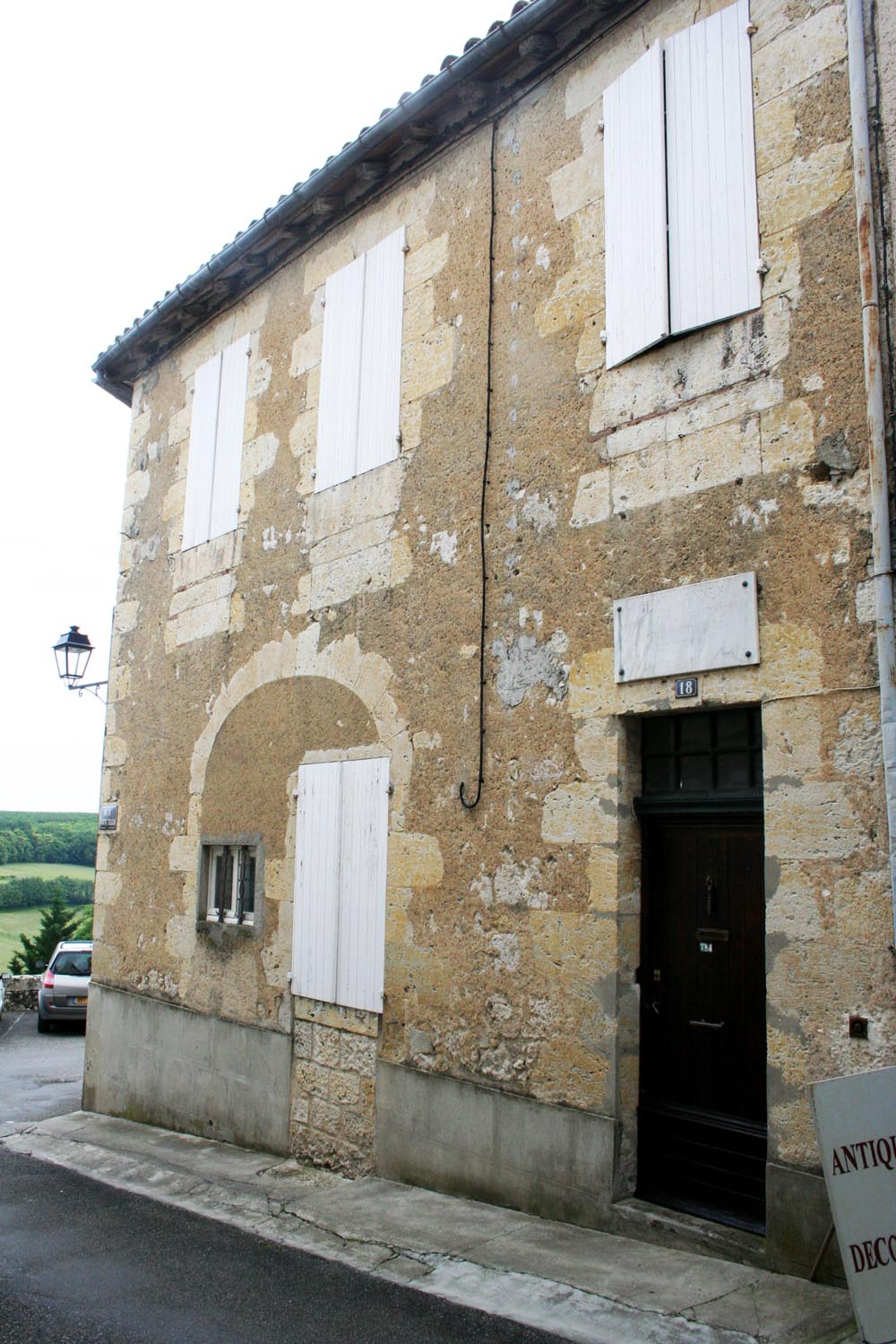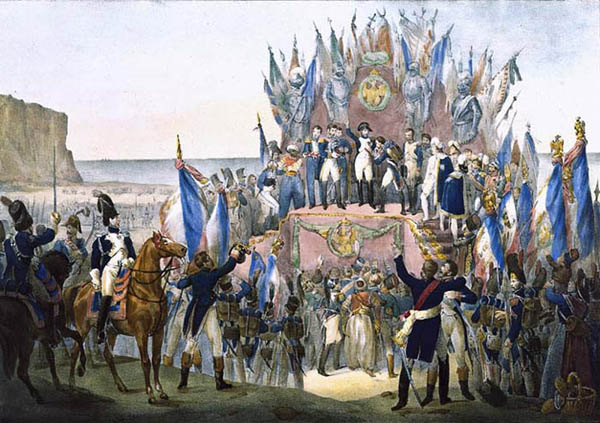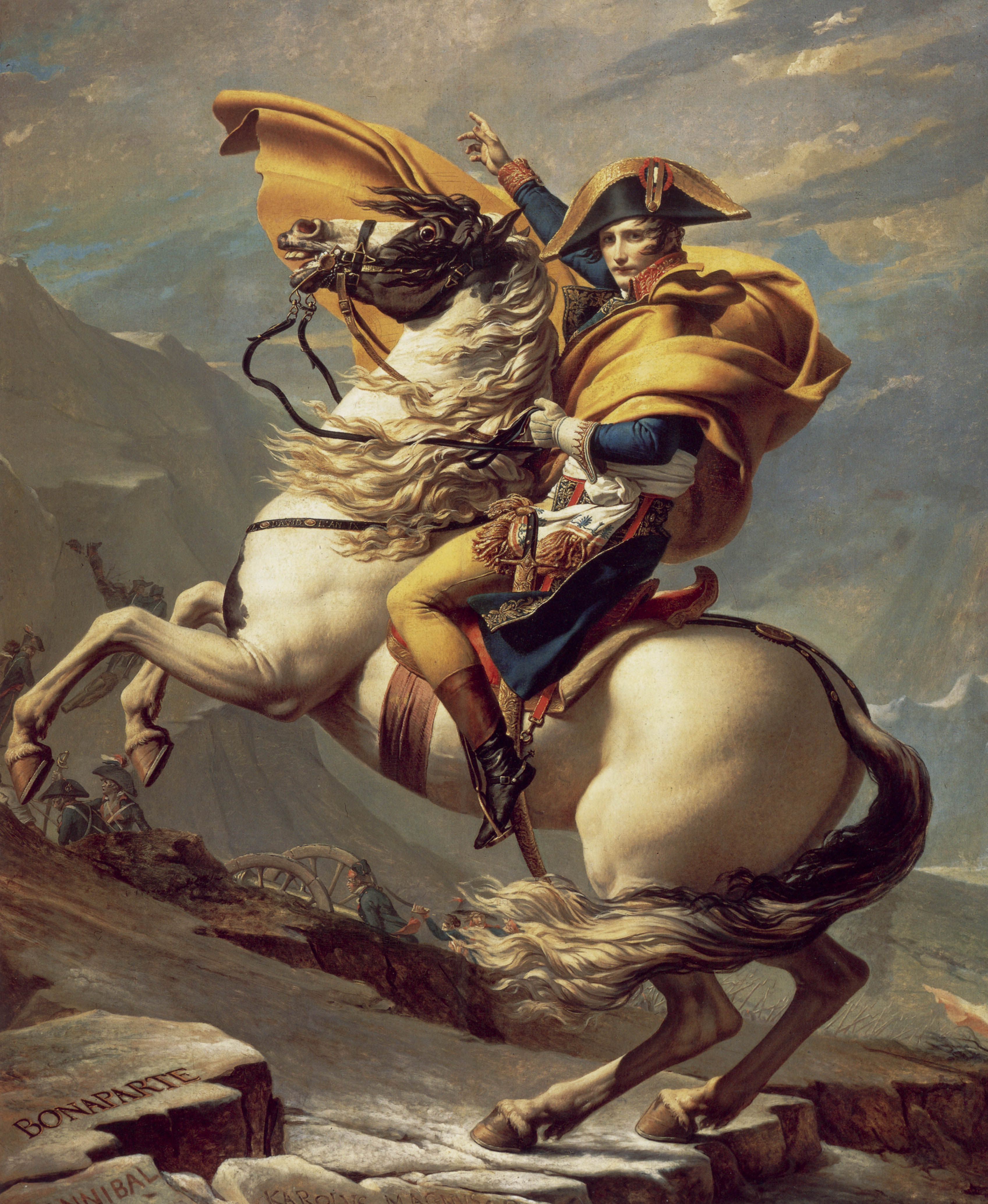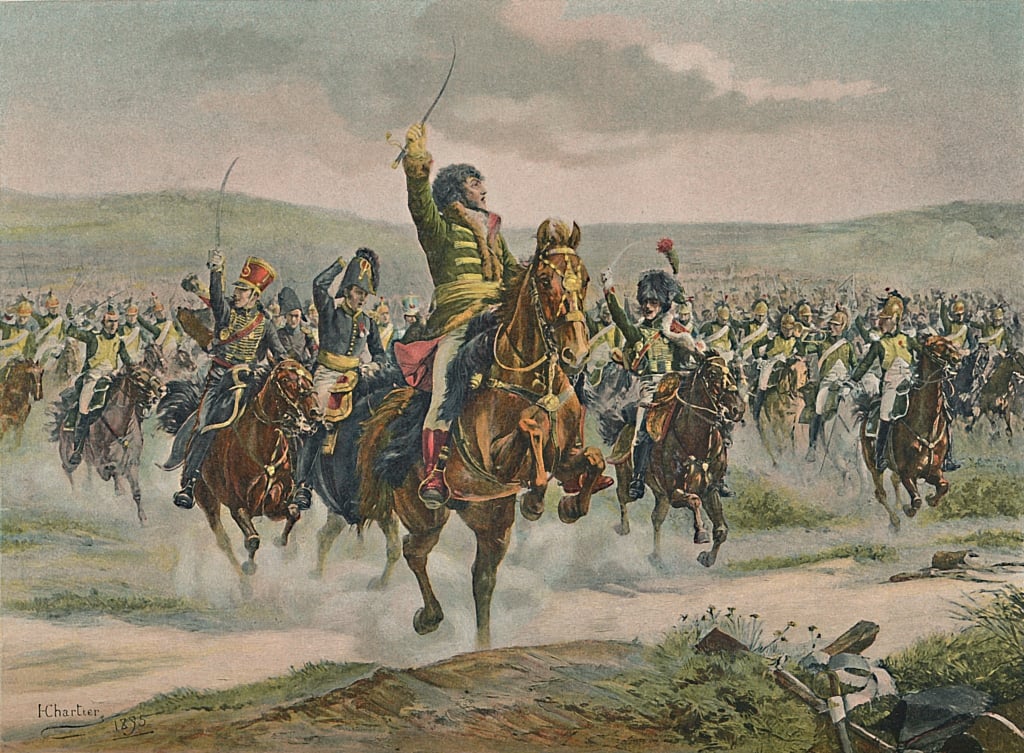|
Louis-Chrétien Carrière, Baron De Beaumont
Louis-Chrétien Carrière, baron de Beaumont (24 April 1771 – 16 December 1813) was a French cavalry general during the Revolutionary and Napoleonic Wars. Early career Born in Malplacey, near Brouchy, on 24 April 1771, Carrière joined the Queen's Dragoons (later renamed the 6th Dragoons) as a trooper on 1 April 1788. In 1792 he began service in the Army of the North, and due to his actions during the attack on the Austrian camp at Maulde, he was promoted to Second lieutenant in the on 23 November 1792 and full Lieutenant on 20 April the following year. On 23 September 1793 Carrière was appointed aide-de-camp to General Thomas-Alexandre Dumas (also a former trooper in the 6th Dragoons) and served with him in the Army of the West putting down the revolt in the Vendée until 1796. He was appointed deputy to the General Staff of the Army of Italy on 22 September 1796, and made a captain on 5 October the same year. Acting once more as Dumas' aide-de-camp, he took part ... [...More Info...] [...Related Items...] OR: [Wikipedia] [Google] [Baidu] |
Brouchy
Brouchy () is a Communes of France, commune in the Somme (department), Somme Departments of France, department in Hauts-de-France in northern France. Geography Brouchy is situated on the D4937 road, some southwest of Saint-Quentin, Aisne, Saint-Quentin. Population See also *Communes of the Somme department References Communes of Somme (department) {{Péronne-geo-stub ... [...More Info...] [...Related Items...] OR: [Wikipedia] [Google] [Baidu] |
Army Of Italy (France)
The Army of Italy (french: Armée d'Italie) was a field army of the French Army stationed on the Italian border and used for operations in Italy itself. Though it existed in some form in the 16th century through to the present, it is best known for its role during the French Revolutionary Wars (in which it was one of the early commands of Napoleon Bonaparte, during his Italian campaign) and Napoleonic Wars. History Bonaparte's reforms Poorly supplied (uniforms and shoes were rare), and only getting reinforcements irregularly, the Army of Italy was sometimes reduced to looting to survive. When Bonaparte arrived (he took up command on 27 March 1796), indiscipline was rife. Chouan songs were sung by the troops, and a company of the Dauphin was formed. All the while improving the supply system as much as possible, Bonaparte also reestablished discipline. He condemned officers who had cried ''Vive le roi !'', (English: "Live the king!"), dismissed the 13th regiment of hussa ... [...More Info...] [...Related Items...] OR: [Wikipedia] [Google] [Baidu] |
Battle Of Ulm
The Battle of Ulm on 16–19 October 1805 was a series of skirmishes, at the end of the Ulm Campaign, which allowed Napoleon I to trap an entire Austrian army under the command of Karl Freiherr Mack von Leiberich with minimal losses and to force its surrender near Ulm in the Electorate of Bavaria. Background In 1805, the United Kingdom, the Austrian Empire, Sweden, and the Russian Empire formed the Third Coalition to overthrow the French Empire. When Bavaria sided with Napoleon, the Austrians, 72,000 strong under Mack, prematurely invaded while the Russians were still marching through Poland. The Austrians expected the main battles of the war to take place in northern Italy, not Germany, and intended only to protect the Alps from French forces. A popular but apocryphal legend has it that the Austrians used the Gregorian calendar, the Russians were still using the Julian calendar. This meant that their dates did not correspond, and the Austrians were brought into confli ... [...More Info...] [...Related Items...] OR: [Wikipedia] [Google] [Baidu] |
Battle Of Wertingen
In the Battle of Wertingen (8 October 1805) Imperial French forces led by Marshals Joachim Murat and Jean Lannes attacked a small Austrian corps commanded by Feldmarschall-Leutnant Franz Xaver von Auffenberg. This action, the first battle of the Ulm Campaign, resulted in a clear French victory. Wertingen lies northwest of Augsburg. The combat was fought during the War of the Third Coalition, part of the Napoleonic Wars. Background Emperor Napoleon Bonaparte had launched his 200,000-man Grand Army across the Rhine. This huge mass of maneuver wheeled to the south and crossed the Danube River to the east of (i.e., behind) General Karl Freiherr Mack von Leiberich's concentration at Ulm. Unaware of the force bearing down on him, Mack stayed in place as Napoleon's corps spread south across the Danube, slicing across his lines of communication with Vienna. Forces Murat's advance guard included the heavy cavalry divisions of General of Division Louis Klein (16 squadrons of the 1st, ... [...More Info...] [...Related Items...] OR: [Wikipedia] [Google] [Baidu] |
Jean Lannes
Jean Lannes, 1st Duke of Montebello, Prince of Siewierz (10 April 1769 – 31 May 1809), was a French military commander and a Marshal of the Empire who served during both the French Revolutionary and Napoleonic Wars. He was one of Napoleon's most daring and talented generals, and is regarded by many as one of history's greatest military commanders. Napoleon once commented on Lannes: ''"I found him a pygmy and left him a giant"''. A personal friend of the emperor, he was allowed to address him with the familiar '' tu'', as opposed to the formal '' vous''. Early life Lannes was born in the small town of Lectoure,Dunn-Pattison. p. 117. in the province of Gascony in Southern France. He was the son of a small landowner and merchant, Jeannet Lannes (1733–1812), son of Jean Lannes (d. 1746), a farmer, and his wife, Jeanne Pomiès (d. 1770), and paternal grandson of Pierre Lane and wife Bernarde Escossio (both died in 1721), and wife Cécile Fouraignan (1741–1799), daughter of B ... [...More Info...] [...Related Items...] OR: [Wikipedia] [Google] [Baidu] |
Marshal Of The Empire
Marshal of the Empire (french: Maréchal d'Empire) was a civil dignity during the First French Empire. It was created by ''Sénatus-consulte'' on 18 May 1804 and to a large extent reinstated the formerly abolished title of Marshal of France. According to the ''Sénatus-consulte'', a Marshal was a grand officer of the Empire, entitled to a high-standing position at the Court and to the presidency of an electoral college. Although in theory reserved "to the most distinguished generals", in practice Emperor Napoleon I granted the title according to his own wishes and convictions and made at least a few controversial choices. Although not a military rank, a Marshal displayed four silver stars, while the top military rank, General of Division, displayed three stars. Furthermore, the Marshalate quickly became the prestigious sign of the supreme military attainment and it became customary that the most significant commands be given to a Marshal. Each Marshal held his own coat of arms, ... [...More Info...] [...Related Items...] OR: [Wikipedia] [Google] [Baidu] |
Grande Armée
''La Grande Armée'' (; ) was the main military component of the French Imperial Army commanded by Emperor Napoleon Bonaparte during the Napoleonic Wars. From 1804 to 1808, it won a series of military victories that allowed the French Empire to exercise unprecedented control over most of Europe. Widely acknowledged to be one of the greatest fighting forces ever assembled in history, it suffered enormous losses during the disastrous invasion of Russia in 1812, after which it never recovered its strategic superiority. The ''Grande Armée'' was formed in 1804 from the ''L'Armée des côtes de l'Océan'' (Army of the Ocean Coasts), a force of over 100,000 men that Napoleon had assembled for the proposed invasion of Britain. Napoleon later deployed the army in eastern Europe to eliminate the combined threat of Austria and Russia, which were part of the Third Coalition assembled against France. Thereafter, the name ''Grande Armée'' was used for the principal French Army deploy ... [...More Info...] [...Related Items...] OR: [Wikipedia] [Google] [Baidu] |
Colonel
Colonel (abbreviated as Col., Col or COL) is a senior military officer rank used in many countries. It is also used in some police forces and paramilitary organizations. In the 17th, 18th and 19th centuries, a colonel was typically in charge of a regiment in an army. Modern usage varies greatly, and in some cases, the term is used as an honorific title that may have no direct relationship to military service. The rank of colonel is typically above the rank of lieutenant colonel. The rank above colonel is typically called brigadier, brigade general or brigadier general. In some smaller military forces, such as those of Monaco or the Vatican, colonel is the highest rank. Equivalent naval ranks may be called captain or ship-of-the-line captain. In the Commonwealth's air force ranking system, the equivalent rank is group captain. History and origins By the end of the late medieval period, a group of "companies" was referred to as a "column" of an army. According to Raymond Ol ... [...More Info...] [...Related Items...] OR: [Wikipedia] [Google] [Baidu] |
Chef De Brigade
Chef de brigade was a military rank in the French Royal Artillery and in the revolutionary French armies. Before the revolution ''Chef de brigade'' was equivalent to major in the French Royal Corps of Artillery. Each regiment of artillery was divided into two battalions, each of two brigades under the command of a ''chef de brigade''. This rank was given to the best of the ''Capitaines en premier'' (first captains) in a regiment, commanding an artillery brigade that would be able to support an army division.Alder, Ken (2010). ''Engineering the Revolution: Arms and Enlightenment in France, 1763-1815.'' The University of Chicago Press, p. 80. During and after the revolution ''Chef de brigade'' was equivalent to colonel, in the French Revolutionary army, in command of a demi-brigade. Both that unit (replacing a regiment) and that rank (replacing the rank of mestre de camp Mestre de camp or Maître de camp (; "camp-master") was a military rank in the Ancien Régime of France, equi ... [...More Info...] [...Related Items...] OR: [Wikipedia] [Google] [Baidu] |
Battle Of Marengo
The Battle of Marengo was fought on 14 June 1800 between French forces under the First Consul Napoleon Bonaparte and Austrian forces near the city of Alessandria, in Piedmont, Italy. Near the end of the day, the French overcame General Michael von Melas's surprise attack, drove the Austrians out of Italy and consolidated Bonaparte's political position in Paris as First Consul of France in the wake of his coup d'état the previous November. Surprised by the Austrian advance toward Genoa in mid-April 1800, Bonaparte hastily led his army over the Alps in mid-May and reached Milan on 2 June. After cutting Melas's line of communications by crossing the River Po and defeating ''Feldmarschallleutnant'' (FML) Peter Karl Ott von Bátorkéz at Montebello on 9 June, the French closed in on the Austrian Army, which had massed in Alessandria. Deceived by a local double agent, Bonaparte dispatched large forces to the north and the south, but the Austrians launched a surprise attack o ... [...More Info...] [...Related Items...] OR: [Wikipedia] [Google] [Baidu] |
Joachim Murat
Joachim Murat ( , also , ; it, Gioacchino Murati; 25 March 1767 – 13 October 1815) was a French military commander and statesman who served during the French Revolutionary Wars and Napoleonic Wars. Under the French Empire he received the military titles of Marshal of the Empire and Admiral of France. He was the 1st Prince Murat, Grand Duke of Berg from 1806 to 1808 and King of Naples as Joachim-Napoleon ( it, Gioacchino Napoleone, links=no) from 1808 to 1815. He was the brother-in-law of Napoleon Bonaparte. Early life Murat was born on 25 March 1767 in La Bastide-Fortunière (later renamed Labastide-Murat after him), in Guyenne (the present-day French department of Lot). His father was Pierre Murat-Jordy (d. 27 July 1799), an affluent yeoman, innkeeper, postmaster and Roman Catholic churchwarden. His mother was Jeanne Loubières (1722 – 11 March 1806), the daughter of Pierre Loubières and his wife Jeanne Viellescazes. Murat's father, Pierre Murat-Jordy, was the s ... [...More Info...] [...Related Items...] OR: [Wikipedia] [Google] [Baidu] |
Chef D'escadron
In the French armed forces (and in the armed forces of former French colonies such as the armed forces of Niger , February 19, 2010), ''Chef d'escadron'' ("") is the title of a '''' ( |

.jpg)





